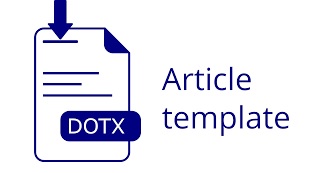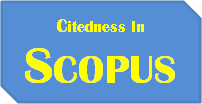Model Tata Kelola Pemerintahan Daerah yang Efektif dan Akuntabel: Studi pada Pemerintah Kota Metro Lampung
DOI:
https://doi.org/10.30656/sawala.v13.i1.10566Keywords:
tata kelola pemerintahan, akuntabilitas, efektivitas, good governanceAbstract
This study aims to identify and analyze effective and accountable local government governance models in Metro City, Lampung Province. The approach employed is qualitative, utilizing literature review methods to examine scientific references, policy documents, and international publications related to sound governance principles. Data sources include books, journals, legislation (particularly Law No. 23 of 2014), performance reports of the Metro City Government, as well as publications from the UNDP and World Bank. The research findings indicate that Metro City has adopted principles of good governance such as transparency, accountability, efficiency, and public participation; however, it still faces challenges in policy consistency, institutional capacity, and community engagement. This study recommends strengthening the performance evaluation system, improving human resource competencies, and utilizing information technology in public services. The success of an effective and accountable governance model requires political commitment, interagency coordination, and active community participation.
References
Arnstein, S. R. (1969). A ladder of citizen participation. Journal of the American Planning Association, 35(4), 216–224.
Budiati, A. (2016). Akuntabilitas pemerintahan daerah: Antara retorika dan praktik. Jurnal Ilmu Administrasi, 13(2), 112–125.
Dwiyanto, A. (2011). Mewujudkan good governance melalui pelayanan publik. Gadjah Mada University Press.
Grindle, M. S. (2007). Good enough governance revisited. Development Policy Review, 25(5), 553–574.
Hadiz, V. R., & Robison, R. (2004). Neo-liberal reforms and illiberal consolidations: The Indonesian paradox. Journal of Development Studies, 40(2), 220–241.
Kurniawan, R. (2015). Kepemimpinan kepala daerah dan reformasi birokrasi. Jurnal Administratie, 12(1), 45–60.
Osborne, S. P. (2006). The new public governance?. Public Management Review, 8(3), 377–387.
Pierre, J., & Peters, B. G. (2000). Governance, politics and the state. Palgrave Macmillan.
Pratama, Y. A., & Wiguna, A. P. (2021). Transparansi informasi publik di era digital: Studi di pemerintahan Kota. Jurnal Kebijakan Publik, 7(1), 45–60.
Rhodes, R. A. W. (1996). The new governance: Governing without government. Political Studies, 44(4), 652–667.
Saparuddin, S. (2019). Akuntabilitas pemerintah Kota Makassar dalam pelayanan publik. Jurnal Ilmu Pemerintahan, 7(2), 86–97.
Sumardi, D. (2018). Penguatan tata kelola pemerintahan melalui e-government di Kabupaten Sleman. Jurnal Administrasi Publik, 15(1), 33–48.
UNDP. (1997). Governance for sustainable human development. New York: United Nations Development Programme.
World Bank. (2007). Strengthening World Bank Group engagement on governance and anticorruption.
Downloads
Published
License
Copyright (c) 2025 Pindo Riski Saputra, Yuditya Wardhana

This work is licensed under a Creative Commons Attribution-NonCommercial-ShareAlike 4.0 International License.








